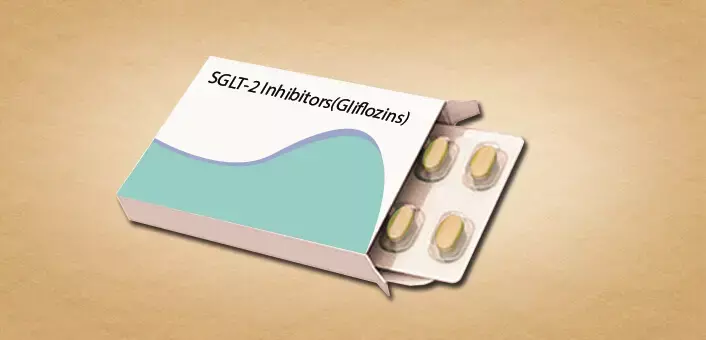- Home
- Medical news & Guidelines
- Anesthesiology
- Cardiology and CTVS
- Critical Care
- Dentistry
- Dermatology
- Diabetes and Endocrinology
- ENT
- Gastroenterology
- Medicine
- Nephrology
- Neurology
- Obstretics-Gynaecology
- Oncology
- Ophthalmology
- Orthopaedics
- Pediatrics-Neonatology
- Psychiatry
- Pulmonology
- Radiology
- Surgery
- Urology
- Laboratory Medicine
- Diet
- Nursing
- Paramedical
- Physiotherapy
- Health news
- Fact Check
- Bone Health Fact Check
- Brain Health Fact Check
- Cancer Related Fact Check
- Child Care Fact Check
- Dental and oral health fact check
- Diabetes and metabolic health fact check
- Diet and Nutrition Fact Check
- Eye and ENT Care Fact Check
- Fitness fact check
- Gut health fact check
- Heart health fact check
- Kidney health fact check
- Medical education fact check
- Men's health fact check
- Respiratory fact check
- Skin and hair care fact check
- Vaccine and Immunization fact check
- Women's health fact check
- AYUSH
- State News
- Andaman and Nicobar Islands
- Andhra Pradesh
- Arunachal Pradesh
- Assam
- Bihar
- Chandigarh
- Chattisgarh
- Dadra and Nagar Haveli
- Daman and Diu
- Delhi
- Goa
- Gujarat
- Haryana
- Himachal Pradesh
- Jammu & Kashmir
- Jharkhand
- Karnataka
- Kerala
- Ladakh
- Lakshadweep
- Madhya Pradesh
- Maharashtra
- Manipur
- Meghalaya
- Mizoram
- Nagaland
- Odisha
- Puducherry
- Punjab
- Rajasthan
- Sikkim
- Tamil Nadu
- Telangana
- Tripura
- Uttar Pradesh
- Uttrakhand
- West Bengal
- Medical Education
- Industry
Risk: Benefit Profile of Sodium-Glucose Cotransporter 2 Inhibitors: JCEM

Sodium-glucose cotransporter 2 inhibitors (SGLT2i) are first-line antidiabetic agents with demonstrated cardiovascular benefits. In a recent meta-analysis, researchers have reported that SGLT2 inhibitors are safe but increase the risk of infections and ketoacidosis and decrease the risk of Acute Kidney Injury (AKI). The study findings were published in The Journal of Clinical Endocrinology & Metabolism on April 25, 2021.
Prior meta-analyses have examined AEs associated with these drugs in general, but such knowledge needs to be updated with the results of more recent trials. In addition, the occurrence of various AEs with different underlying diseases is unknown. Therefore, researchers of the National Taiwan University Hospital conducted a study to investigate the occurrence of various adverse events (AEs) associated with sodium-glucose cotransporter 2 inhibitors (SGLT2i). They further examined the level of risk of AEs in patients with different underlying diseases.
It was a quantitative meta-analysis of randomized controlled trials (RCTs) retrieved from the MEDLINE and EMBASE databases and the Cochrane library and included 71,553 participants. The outcomes assessed were 4 overall safety outcomes (AEs) and 12 specified safety outcomes. They also performed further analyses on various subgroups, which were defined based on the status of diabetes mellitus (DM), atherosclerotic cardiovascular disease (ASCVD), chronic kidney disease, and congestive heart failure, and by the dosage of SGLT2i (high dose versus low dose).
Key findings of the study were:
- Upon analysis, the researchers found that SGLT2i led to increased risks of a genital infection (risk ratio [RR] 3.56), urinary tract infection (RR 1.06), diabetic ketoacidosis (RR 2.23), and volume depletion (RR 1.14).
- They also found that the use of SGLT2i was associated with reduced risks of any serious AE (RR 0.92), acute kidney injury (AKI) (RR 0.84), and hyperkalemia (RR 0.84).
- In a subgroup analysis, they noted that the risk of amputation was higher in patients with ASCVD than in those without ASCVD (RR 1.44 vs 0.96).
The authors concluded, "The use of SGLT2i is generally safe. SGLT2i may be associated with increased risks of genital infection but is protective against AKI. Of note, the risk of amputation was higher in patients with ASCVD."
They further noted, "The key to the safe use of SGLT2i lies in the identification of high-risk populations and close surveillance of patients after treatment."
For further information;
Dr Kartikeya Kohli is an Internal Medicine Consultant at Sitaram Bhartia Hospital in Delhi with super speciality training in Nephrology. He has worked with various eminent hospitals like Indraprastha Apollo Hospital, Sir Gangaram Hospital. He holds an MBBS from Kasturba Medical College Manipal, DNB Internal Medicine, Post Graduate Diploma in Clinical Research and Business Development, Fellow DNB Nephrology, MRCP and ECFMG Certification. He has been closely associated with India Medical Association South Delhi Branch and Delhi Medical Association and has been organising continuing medical education programs on their behalf from time to time. Further he has been contributing medical articles for their newsletters as well. He is also associated with electronic media and TV for conduction and presentation of health programs. He has been associated with Medical Dialogues for last 3 years and contributing articles on regular basis.
Dr Kamal Kant Kohli-MBBS, DTCD- a chest specialist with more than 30 years of practice and a flair for writing clinical articles, Dr Kamal Kant Kohli joined Medical Dialogues as a Chief Editor of Medical News. Besides writing articles, as an editor, he proofreads and verifies all the medical content published on Medical Dialogues including those coming from journals, studies,medical conferences,guidelines etc. Email: drkohli@medicaldialogues.in. Contact no. 011-43720751


